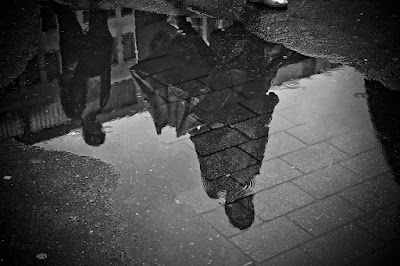 |
| Stock Image |
It seems that in this hyperconsumerism driven culture, we've lost the art of making do. Probably the last time we as a society collectively practiced making do was during the Great Depression and World War II. It was a survival skill that was quickly forgotten amongst the disposable world we live in today. Don't get me wrong. There are still people out there who know a thing or two about making do, mostly out of necessity. But the majority of our society has fallen into the mindset of discarding and buying new. Using something until it has no use left in it is a foreign concept.
We are bombarded with commercials that tell us what we need to buy. Products are manufactured with disposal in mind. Big tech companies make it hard to repair their products, thus it becomes easier if you have the funds just to purchase new. Most things these days are manufactured to appear to become obsolete within a limited time, manipulating the consumer to buy the latest computer/phone/shoes, etc. And many items are manufactured for single usage.
The clothing industry is a good example. Except for the rare knee patch on a kid's worn pair of jeans, most people no longer mend clothing or have the skill to do so. Unfortunately, most clothing doesn't even get to that stage before it's discarded or donated. Fast fashion has created a highly wasteful market. While I think it is important to donate and shop used, the used market has been overwhelmed as well. What we need to go back to is using up, mending, repairing. That is where the impact is going to make the biggest difference to the environment and to the current market.
 |
| Stock Image |
This past week I made a realization about making do when it comes to food. Money is tight right now. Really tight. I've been keeping us fed by making do and using up food staples I already have on hand. I'm amazed at how much food I have even though it doesn't feel like it. We get so accustomed to being able to make our weekly or monthly grocery shopping trip and when it doesn't happen we feel like we are lacking. In truth, most of us here in the U.S. have plenty in our pantries that we can use up before truly going hungry. We may be eating lots of boring rice, dried beans, and pasta, but we are not going hungry. When you are hit with hard times a well-stocked pantry and the ability to make do are a life saver.
How can making do improve our lives? What if we learned to appreciate the fine wear of our shoes, the slight pull of a thread on our sweater, the miles displayed on our car's odometer, the harmless chip on our coffee mug? What if we saw the beauty in how much use an item still holds instead of allowing ourselves to be pulled in by the desire for something new? What if we learn truly be grateful for what we already have by using it up or wearing it out?
 |
| Stock Image |
Making do can make a big impact on our environment. We'll buy less stuff, which in turn means fewer resources will be used up and less pollution created during the manufacture of new items, as well as less of an impact from discarded items. Our money will go further and we can spend it on things that are truly fulfilling, like time with friends and family, traveling, or pursuing the things that feed our souls. It pairs nicely with minimalism in that we aren't going out and filling our homes with more unneeded stuff. And I suspect it encourages greater respect toward our possessions that lead us to care for them better so they will last longer.
Do you have a story of making do? Was it by choice or for survival?














































